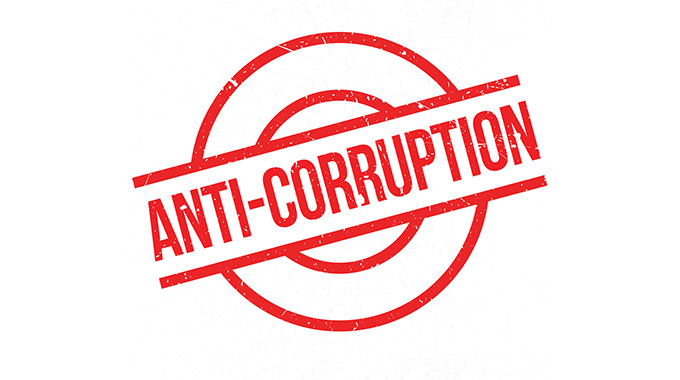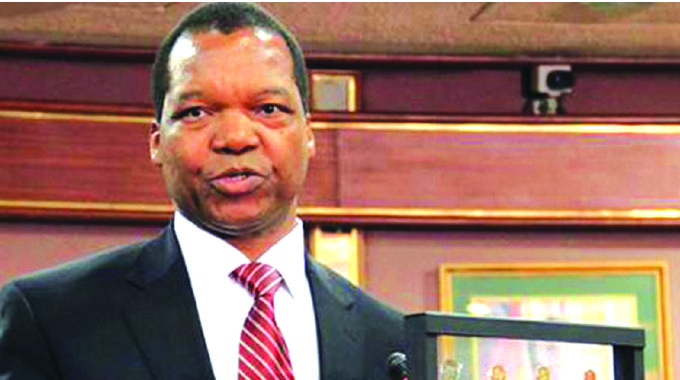Editorial Comment: Beating corruption needs attitude change

Fighting corruption in Zimbabwe needs to not only tackle those who demand and take bribes, but the attitude, all too common regrettably, that a lot of people are on the take and all that is required is to find the right person, slip them a few US dollars and have what you want done.
We have seen this in its latest manifestation with a woman who was quite ready to accept that two ZACC commissioners, and there are only nine, were quite ready to go far beyond their functions and help her have goods held by Zimra for non-payment of duty released, without any Zimra payment for duty and storage.
This is more astounding in many ways than the fact that a police superintendent and some of his buddies were allegedly running a criminal scam with two of the buddies pretending to be the corrupt ZACC commissioners and other people seeking victims to con.
We can expect con artists, and if the senior police officer is found to be one well this might be unusual, but sometimes police forces find they have criminals on the payroll and in most forces there are internal mechanisms in place to ensure a police force arrests more criminals than it employs, to quote the British Commissioner who cleaned up the Metropolitan Police 40 years ago.
But for a con to work the person being conned has to believe the lies they are told, and obviously in this case the conned woman was working on the assumption that corruption was so prevalent that even those sworn to lead the battle against corruption were willing and able, for a modest fee, to be more corrupt than many they hunt down.
So among the many threads in an anti-corruption programme is the need to get general acceptance that there is no alternative, but to go through the laid down processes and follow the laid down rules.
If no one was willing to pay a bribe then there would be no bribery.
Other forms of corruption exist of course, and we have seen this in the land scandals involving several municipalities where even the innocent who never paid a bribe were conned, along with others who knew something was not legal, but were prepared to pay a bribe for a false document.
Sometime people find the rules and regulations difficult to navigate. Here Government departments may need to be more user friendly.
A great deal has already been done in many departments to have staff who can at least explain what documents and fees someone must produce when requiring a service, and sometimes a person making a query needs a notebook and pen to write down the requirements and the steps they must follow.
Most civil servants, and for that matter police officers, are very familiar with the procedures in their office or station, but sometimes forget that the member of the public walking in is definitely not in this group.
Some, and Zimra is a good example, have built up websites that do explain what is needed to successfully navigate a procedure, but others need to do more.
Many of these rules and regulations are not there to make life difficult. They are there to ensure that the process cannot be short circuited by the dishonest, either on the public side of the grill or the civil service side.
And there are some factors that have arisen in the past that require a couple of extra documents and checks, for deceit that the member of the public would have difficult imagining.
But what is critical is the necessary process to be clearly explained, and for notices and websites to be available that spell out what someone clearing a will, for example, needs to do, and what documents someone wanting to be compliant with tax laws must have and produce.
And then there must be a laid down complaints system. There is suspicion that some delays and the like are generated by those who seek a bribe. Perhaps, but a lack of competence is also possible and quite likely.
But if there is a proper complaints system in place then a lot of doubts can be resolved. Sometimes the complaint is not really justified; the process involved takes time although again the growing volume of information given to the public as a right should include time lines, so people know when something is not quite right.
And the complaints system must make it clear that if someone is angling for a bribe that this needs to be reported promptly, not just accepted.
Less and less of the corruption is done directly, with the corrupt driving examiners for example working through the driving schools so that no one can make a connection. But others are more obvious.
With the near universal possession of modern mobile phones evidence is now much easier to produce since a phone switched on and with the record button pressed can still be sitting in a pocket or bag gathering required evidence that will make the complaint very forceful.
Once everyone is willing to work within the system, and is willing to complain if something is not going right, corruption will be slashed.
Many civil servants and police officers are not corrupt and try under very trying circumstances to do their job properly and efficiently.
Efforts under the Second Republic have concentrated on getting the minority who are criminal or incompetent to join the majority or leave the service where they are employed.
The public can help that process by refusing to be involved in criminal activity, and paying a bribe is as corrupt as taking one, and by insisting that they are treated correctly and efficiently by those employed to serve them.
Ending corruption is not just a job for nine commissioners with ZACC.
It is a job for all of us.











Comments